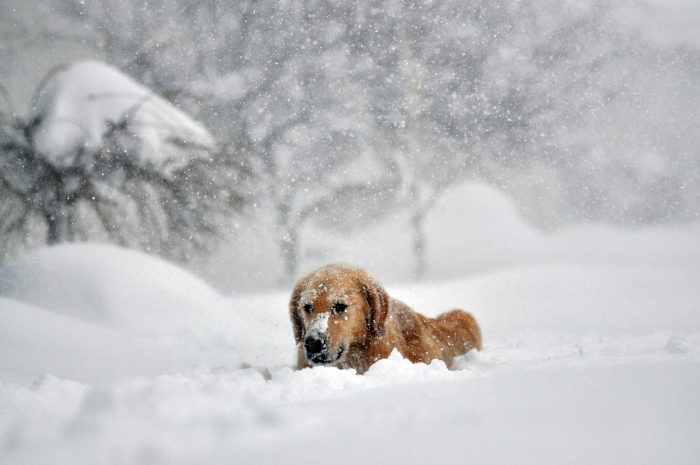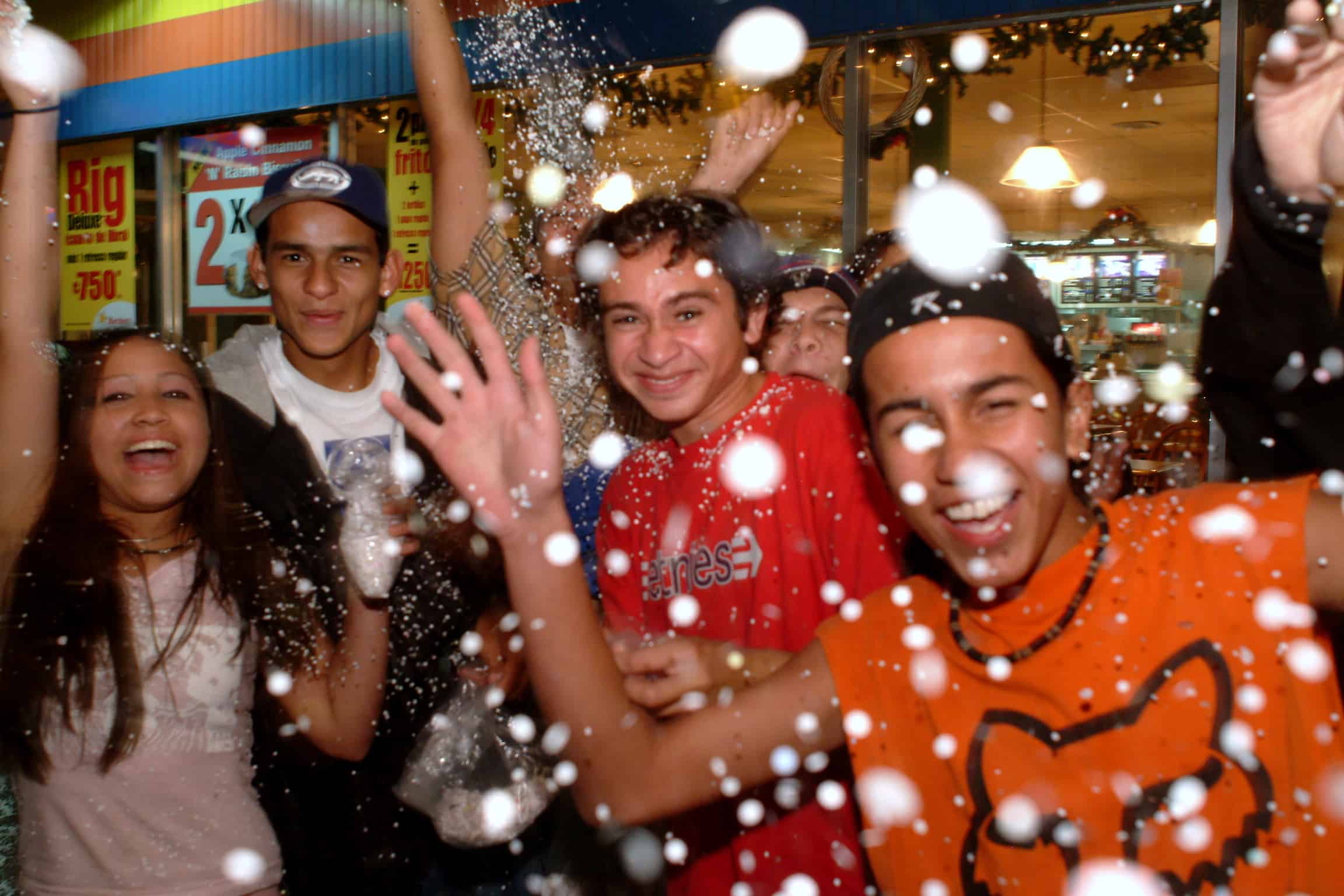Recommended: Save the date – a Costa Rican abroad encounters social calendars
In a brilliant short story by Sergio Ramírez, a veteran meteorologist discovers that, owing to the combination of a series of unlikely climate occurrences, snow is about to fall on the tropical land of Nicaragua. The President of the Republic heads the national preparations for the occasion, in anticipation of which the country is flooded with much-needed supplies: skis, sleds, apples, frozen turkeys, cable knit sweaters. Carpenters work around the clock to install chimneys and central heating in people’s houses. Stores play Christmas carols in English while everyone struggles with the heat and the dust of Managua. In the end, snow does fall in Nicaragua, but only for one night and not in the capital, where the president, his Cabinet and the diplomatic corps are left waiting in vain under fur coats and Scottish blankets.
What I love about this story is the way it captures the romantic notion that we, equatorial people, have of winter and everything relating to it. For a Costa Rican, weather oscillation is measured literally in water. We have the dry season and the rainy season, and it often rains in the dry season, and it is sunny most of the rainy season as well. The length of our days varies very little throughout the year and we basically wear the same clothes at any given point in time. Aside from carrying an umbrella and getting caught up in rain-induced traffic jams, our weather requires very little adaptation. We like the sun, of course. We take pictures of pretty sunsets and post them on Facebook. We enjoy the warmth and the breeze of most of our days. We are aware of weather the same way we are aware of rain forests and volcanoes: They are nice, yes, but they are there. We experience them and immediately forget, because we know they will be there tomorrow and the day after tomorrow.
This obliviousness, which is a form of innocence, fuels our fantasies about winter (or anything other than summer). We have a postcard understanding of seasons because we only know what we have seen on TV or have heard about in songs or have read about in books. We think spring is a permanent picnic bathed in sunlight and the scent of flowers. We believe fall is an orange party mainly serving as an excuse for people to wear trench coats, which we consider very elegant. We think snow is something like dry white foam that rests permanently on the ground for the purpose of snowman production and, although we dread the cold, we more or less believe people spend winters sitting in front of fireplaces, tucking their feet into furry slippers and drinking hot cocoa.
It is no wonder that our first encounter with the actual experience of winter leaves us a little shaken. If there are any readers out there who have not lived through January or February beyond, say, the 35th parallel, please beware: Winter is kind of evil. It is not just the cold, although you never understand what it means until it hurts to breathe and the skin on your face and lips dries up after a 20-minute walk. It is not just the short days, although it is hard to convey how utterly strange it is for a Costa Rican to experience night at 4:30 p.m. It is not just the slushiness and wetness that you did not anticipate because you imagined that snow stayed put on the ground for the duration of winter. It is not even the sight of things that seem dead: dead trees, dead shrubs. It is the dislocation of your everyday life. The way the weather changes your behavior and the behavior of others; the way it conditions your possibilities and your plans.

My first winter here implied a very steep learning curve. I learned to pay attention to weather forecasts, something that Ticos have the privilege to mock. You can’t blame them. Our weathermen tend to sound like Cuban comedian Tres Patines: “It might rain in one part of the country, and it might be sunny in the other part.” I learned to read labels when shopping for clothes. Who in Costa Rica cares if their sweater is made of nylon or cotton or wool? I abandoned my disregard for rubber boots. I discovered the importance of layers. I stocked up on tights. I became familiar with the Fahrenheit scale, although our relationship will always be strained (more on the metric system in the future).
I adapted. Indoor activities. Brisk walking. Insulated shoes. Down comforter. Nonperishables. Resist the temptation to eat all the fat you can find. Take in all the sun you can get. Avoid solitude. Cover your ears. Moisturize. Not having a driver’s license, I have successfully avoided all car-related adaptations, like deicing your windshield, shoveling snow off the driveway and putting chains on your tires, but I have learned to walk slowly after sleet, to avoid grabbing iron bars with ungloved hands, to make sure that my socks are always dry. And I don’t even live that far up north, where the real stuff happens.
I’ve come to understand why most movie romances take place in the summer. First, there’s the issue of looks. I have never been able to live quite up to the standard of dress and makeup of Costa Rican women, but even I understand that shorts and dresses are more appealing than the sleeping bag I am currently walking around in. These days, unless you feel attracted to the tears in my eyelashes, my running nose or the melodic sound of my panting as I try not to freeze in the bus stop, there’s really no hope for a love life. Second, people are more reserved during the winter. They get meditative and a little sad. They seem to be saving energy, emotional energy as much as physical. Like bears or squirrels, they are trying to get by with whatever arrangement they were able to secure before the cold and the dark. Summer means skin and light and change and possibility. Winter means endurance.
Yet I have made my peace with it. I may not welcome its presence, but I am becoming accustomed to winter. It is perhaps not a guest but a tenant. Anyone reading these lines in Costa Rica, please give thanks. Acknowledge the sun on your face tomorrow morning, while December winds shake the leaves in the trees like a bird ruffling its feathers. Be thankful for the rain, which falls warm and full of life. And also know that you are missing out on something, a certain punctuation of time: the expectant cruelty of spring, the voluptuousness of summer, the ominous splendor of fall, and the silence of winter, and the patience, and the hope.
Raquel Chanto is a lawyer and policy wonk trying to survive international bureaucracy in Washington, D.C. In the her monthly column “Please Send Coffee!” she explores aspects of Costa Rican culture and how they contrast with life abroad.






